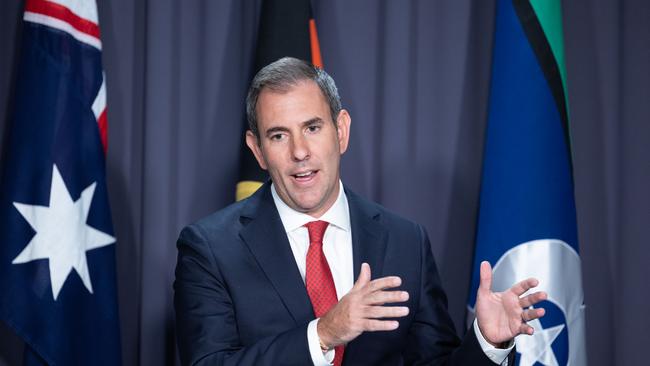IMF backs banking of windfall tax returns
The International Monetary Fund has backed the government’s commitment to bank instead of spend ongoing windfall tax revenues from soaring commodity prices.

The International Monetary Fund says Australia’s economy is on a “narrow path to a soft landing” in 2023, and backed the government’s commitment to bank instead of spend ongoing windfall tax revenues from soaring commodity prices.
In a report, it said “budgetary revenue over-performance should be saved, and the implementation of spending programs should remain judicious, with additional cost-of-living support amid high inflation to be kept temporary and well targeted to the vulnerable”.
The Washington-based organisation emphasised the need for fiscal discipline, saying runaway spending on programs such as the NDIS should be reined in.
Jim Chalmers in a statement said the IMF had delivered a “glowing report card” for the government’s management of the economy and budget.
“Importantly, the IMF report acknowledges the government’s spending restraint helps address the inflation challenge in our economy and avoids making the job of the Reserve Bank harder,” the Treasurer said.
The federal deficit was $14.7bn in the six months to December, an $11.5bn improvement on forecasts in the October budget, according to Department of Finance figures released last week. Government receipts in the first half of 2022-23 were $8.8bn higher than projected, primarily because of a $6.5bn improvement in taxation receipts, while spending was $2.8bn lower than projected.
The IMF also advocated for “comprehensive tax reforms”.
“Reviewing existing, large spending programs and improving expenditure efficiency will be important to underpin medium-term fiscal consolidation,” the report said.
“There are opportunities to make the tax system more efficient and equitable, rebalancing it from currently high direct to indirect taxes, and raise sufficient revenues to fund government programs. The commonwealth government should direct windfall revenue gains to budget repair, with a view to creating additional fiscal buffers to address future shocks.”
IMF officials said tax reform should include broadening of the GST base to include rapidly growing categories such as healthcare.
The IMF also said the stage three tax cuts “will reduce the personal income tax burden” but officials also allowed for a scaling back of the legislated tax relief to assist budget repair.
“With the cuts taking effect from 2024-25, there would be time, if needed, to reassess the parameters to appropriately balance costs on the budget and benefits to the economy,” the report said.
“Addressing bracket creep in (personal income tax) by raising the tax brackets periodically will limit distributional implications, including for low-income households and women.”
The IMF report followed consultations in November with Australian officials, including from Treasury and the Reserve Bank.
“With a rapid post-pandemic economic recovery and favourable terms of trade, Australia has reached a stronger cyclical position than many other advanced economies, with limited scarring,” the report said.
Economic growth would slow from 3.6 per cent in 2022 to 1.6 per cent this year, the IMF predicted.




To join the conversation, please log in. Don't have an account? Register
Join the conversation, you are commenting as Logout